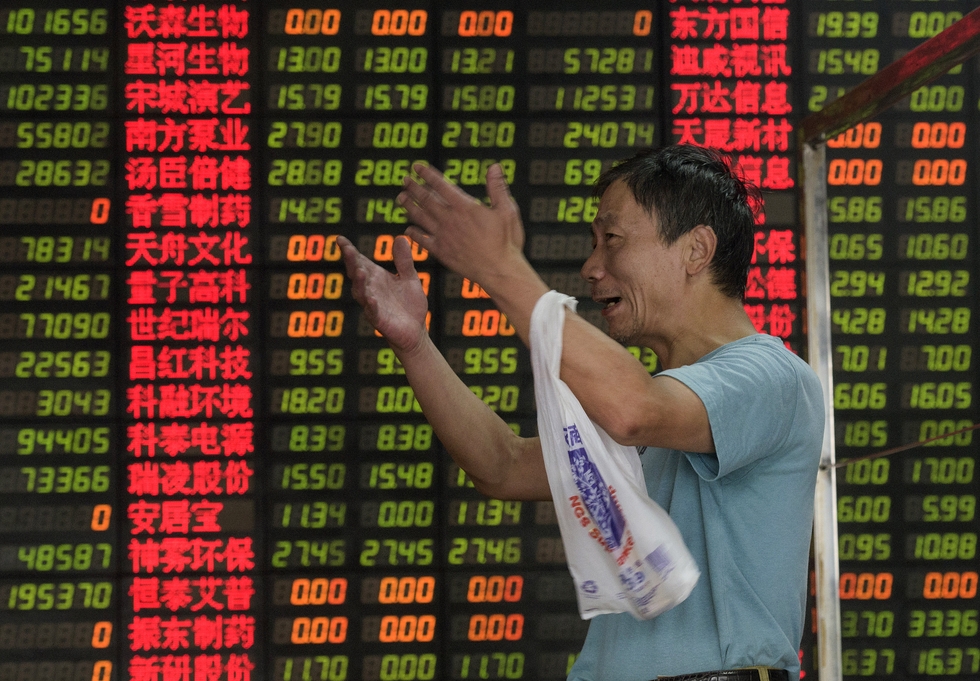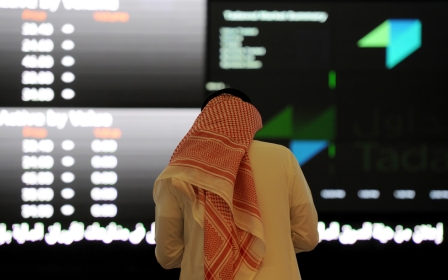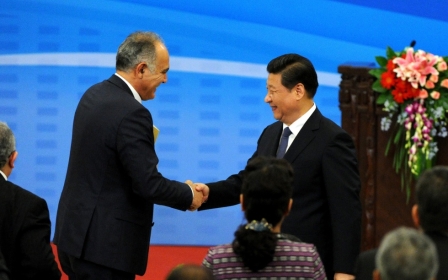ANALYSIS: China crisis spotlights GCC’s growing links with Asia’s giant

Worries about the Chinese economy have alarmed markets around the world, and the Gulf is no exception. The region’s stock exchanges tumbled after China’s Black Monday, with the Saudi stock exchange down by 17 percent at the end of August compared with July. The reaction in financial markets reflects a deeper set of trade and investment connections between the GCC and China.
Over the past decade, economic links with China have been a top priority for the GCC, for three main reasons. The first is that the market for oil is shifting from the US to China. China is expected to be the world’s largest oil consumer in the world by the 2030s, and the GCC countries possess nearly one-third of the world’s known oil reserves. Second, China is also a major market for the Gulf’s growing non-oil businesses.
Third, Gulf investors have been buying into Chinese stocks and bonds, as part of a strategy to lessen their traditional dependence on the US and Europe, and gain from a wider trend of “south-south” economic relations. This economic logic has also coincided with a growing debate in the Gulf about diversifying away from their traditional political and security partners in the West—though that’s a much longer term issue.
Now, questions about China’s economy raise concerns for the oil-rich monarchies of the Gulf Co-operation Council (GCC) in three main ways. Firstly, there will be an impact on direct trade and investment links. Secondly, slowing growth in China could further depress the price of oil. Thirdly, any shock to the world economy poses risks to the Gulf states, given the extent of their international investments.
Direct trade and investment
In 2010-13, GCC trade with China rose faster than with any other trading partner, with imports (particularly consumer goods) increasing by 17 percent, while exports rose by 30 percent. Oil is the main GCC export. But while non-oil exports are much smaller, they’ve been growing rapidly. The GCC’s most successful areas of industrial diversification have been energy-intensive industries like plastics, petrochemicals and metals—all of which have been in high demand in China.
China is the second-largest market for Saudi non-oil exports, and in January, Saudi non-oil exports to China were down by 23 percent. That said, companies importing from China will benefit from the recent devaluation of the renminbi, as they pay less for their goods. The Gulf’s energy-intensive industries are largely the preserve of state-owned enterprises, while the trading companies are more often owned by traditional Gulf merchant families, so while state-owned enterprises will see demand weaken, middle-class private-sector traders may benefit.
As for investment, traditionally Gulf investors have primarily placed their capital in the US and Europe. But one of the key trends of the 21st century has been a gradual shift of Gulf capital towards Asia, for instance with Gulf sovereign wealth funds buying stakes in formerly state-owned Chinese banks. In April, Qatar opened the Gulf’s first renminbi clearing house, to allow Gulf companies to use the Chinese currency to settle transactions with Chinese companies, rather than having to go through banks in Shanghai or Hong Kong. This is still an emerging trend, and the GCC’s direct exposure is quite limited . But some investors have bet heavily on Chinese growth, hence the slide in regional stock markets.
Investment flows go both ways. China’s investment in the Gulf has been limited compared to higher-priority destinations such as sub-Saharan Africa, as the GCC countries have plentiful capital of their own. But in some sectors – especially retail and real estate in the UAE – Chinese businesses have made inroads. In some cases, Chinese companies have set up retail outlets in UAE that target Chinese shoppers visiting the country for duty-free shopping.
In 2014, 14 percent of sales in Dubai airport’s duty free shops went to Chinese consumers but in Ramadan this year, credit and debit card spending by Chinese visitors to the UAE was down by 22 percent compared to last year. Companies are likely to focus yet more efforts on reaching out to the Indian market, and to the growing middle class in key African and Latin American markets whose links with the GCC are less developed.
Oil price
The negative news on China’s economy has weighed on oil futures. It is as yet unclear how serious or protracted any slowdown in China will be. But the future price of oil is one of the main uncertainties for the Gulf economies in the longer term. And the extent to which China needs oil will be one of the main factors. As developed countries have invested in energy efficiency, European demand for oil has actually been flat or declining for most of the past decade (while using more gas). However, it has generally been assumed that demand from developing countries, especially China, would compensate.
Despite diversification, oil still provides most of the government revenue in every GCC country (except Qatar, which is heavily reliant on gas instead). The Gulf economies have become accustomed to a recurring fiscal stimulus, as hefty oil revenues have allowed most of the Gulf governments to increase spending every year since 2003. The under-30s who make up the majority of the GCC’s population have seen spending go up every year for their entire adult lives.
In the ministries tasked with long-term planning, some officials express the hope that the lower oil price will give more impetus - and political will - to implement diversification plans. But this will have far-reaching social and political implications that governments and ruling families may not be fully prepared for.
World economy
Finally, if China’s slowdown results in a wider shock to the world economy, this would pose risks to the Gulf, since the Gulf states are mostly small, trade-oriented countries with limited domestic markets, making most of their investments overseas. So it is not just the impact on China itself that concerns the GCC, but the risks that slowing growth in China poses to other major economies like the US or Germany, for whom China is a vitally important trading partner.
The experience of the last financial crisis in 2007-08 showed that problems in the US mortgage market could eventually rebound on everything from Dubai real estate to Bahrain-based Islamic investment banks, as Gulf state and private companies have increasingly been borrowing from global financial markets.
All that said, the possibility of a “hard landing” for the Chinese economic boom has been predicted for some time. GCC investors and sovereign wealth funds have already been looking beyond the BRICs to new growth markets, including less well developed Asian countries and sub-Saharan Africa. China’s slowdown will be a further spur to make their diversification strategies more broadly based.
Middle East Eye propose une couverture et une analyse indépendantes et incomparables du Moyen-Orient, de l’Afrique du Nord et d’autres régions du monde. Pour en savoir plus sur la reprise de ce contenu et les frais qui s’appliquent, veuillez remplir ce formulaire [en anglais]. Pour en savoir plus sur MEE, cliquez ici [en anglais].




